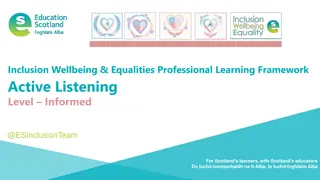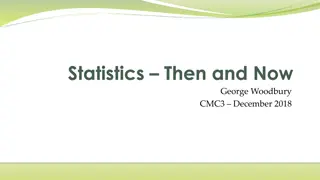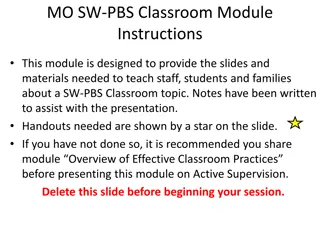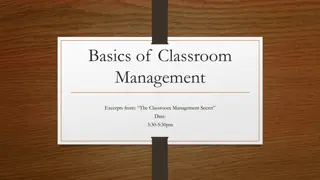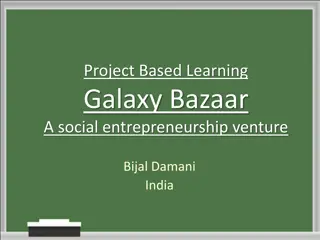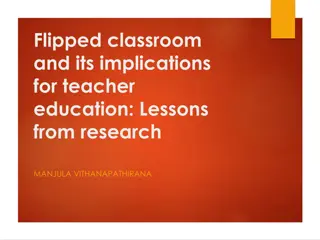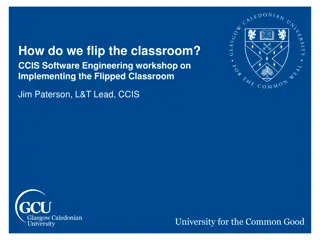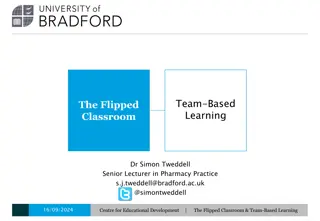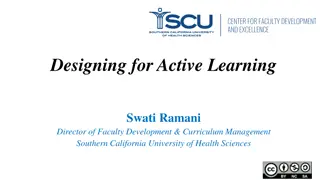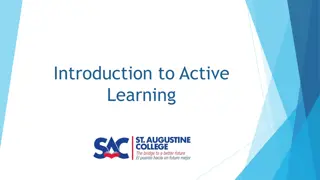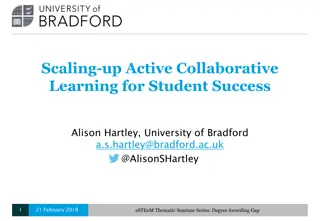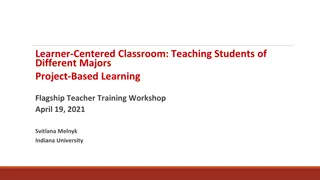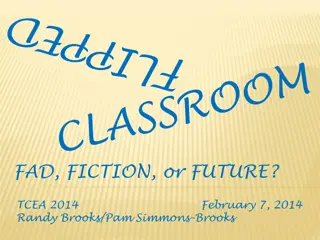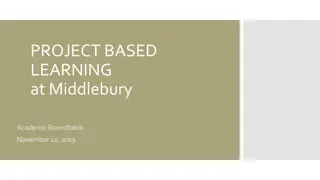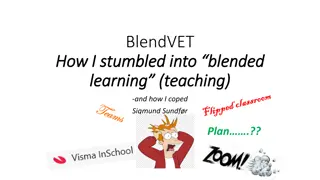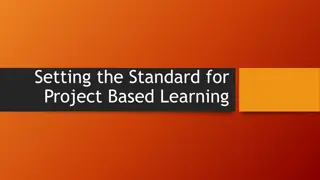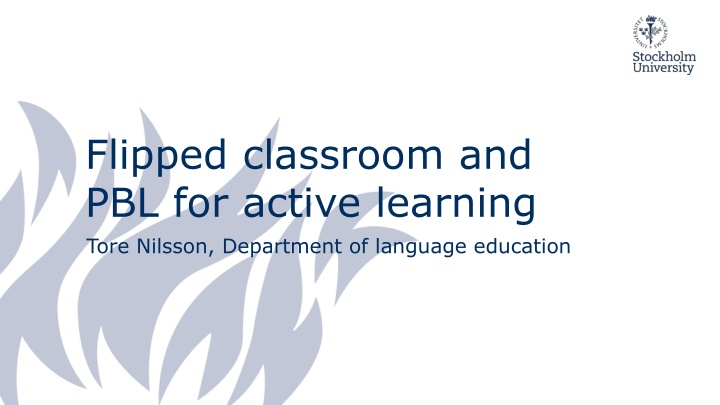
Active Learning Strategies for Student Engagement
Explore the benefits of active learning through the flipped classroom and problem-based learning approaches. Understand how student characteristics and task nature impact learning outcomes. Discover different student approaches to learning and ways to enhance motivation for intrinsic learning. Dive into the essence of the self-determination theory for boosting student engagement. Learn about the flipped classroom methodology and problem-based learning process for effective knowledge transfer and skill development.
Download Presentation

Please find below an Image/Link to download the presentation.
The content on the website is provided AS IS for your information and personal use only. It may not be sold, licensed, or shared on other websites without obtaining consent from the author. If you encounter any issues during the download, it is possible that the publisher has removed the file from their server.
You are allowed to download the files provided on this website for personal or commercial use, subject to the condition that they are used lawfully. All files are the property of their respective owners.
The content on the website is provided AS IS for your information and personal use only. It may not be sold, licensed, or shared on other websites without obtaining consent from the author.
E N D
Presentation Transcript
Flipped classroom and PBL for active learning Tore Nilsson, Department of language education
Active learning The outcome of learning depends on the characteristics of the student and on the nature of the task (Entwistle, 2018) 19/03/2025 /Name Name, Institution or similar
Student approaches to learning Deep Meaning: integrating the whole with its purpose Relationships: integrating the parts into a whole Personal experience: integrating the task with oneself 19/03/2025 /Name Name, Institution or similar
Student approaches to learning Surface Unreflectiveness: treating task as something external Unrelatedness: treating task as an isolated phenomenon Memorization: treating the task as an exercise in memorization 19/03/2025 /Name Name, Institution or similar
The big question The outcome of learning depends on the characteristics of the student and on the nature of the task If this is true what can we do? Can characteristics be influenced? Motivational processes: intrinsic vs extrinsic 19/03/2025 /Name Name, Institution or similar
Self determination theory (Deci & Ryan, 1985) A sense of competence autonomy relatedness can direct students motivational process towards stronger intrinsic motivation
What and How: A short definition of Flipped Classroom Recorded lectures are used for one- way transmission of course content Quizzes check for basic retrieval and understanding Teaching time is used for higher-order flickr.com CC0 1.0 analyses and problem solving
Problem-based learning process Source: TeebaObaid (CC BY-SA 4.0)
Asynchronous and individual work with course literaturand recorded lectures Quizzes to check understanding of basic concepts Synchronous and collaborative group work with more complex tasks Whole class presentations of possible solutions Individual assignment to check undertanding of complex conceptions of tasks, their solutions and a reflection on process and product Individual assessment Creating Whole class Evaluating Analysing Group Applying Understanding Individual Remembering
Some key aspects Frame and direction Build a base stress threshold concepts Balance synchronous and asynchronous teaching activities Product -> Process -> Product 2025-03-19 /Namn Namn, Institution eller liknande
Group task Based on your own subject/discipline, identify one critical context where student engagement is a challenge for you Suggest a way in which a learning sequence could be organized using asynchronous and synchronous activities in order to engage and challenge students. 2025-03-19 /Namn Namn, Institution eller liknande
References Deci, & Ryan (1985). Entwistle, N. (2018). Student Learning and Academic Understanding. London: Academic Press. 19/03/2025 /Name Name, Institution or similar


